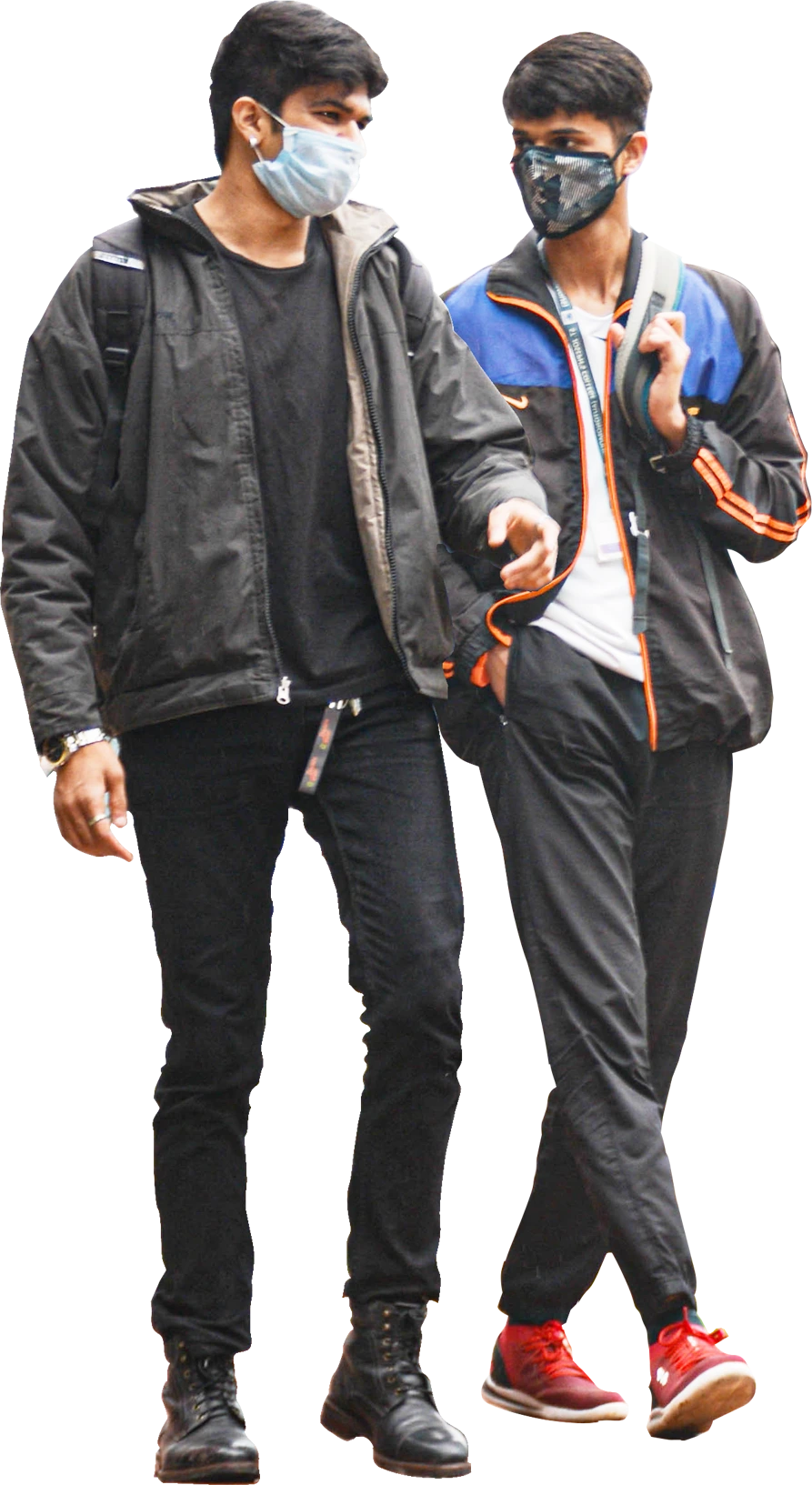
INTERNAL COMPLAINTS COMMITTEE (ICC)
(Under Prevention of sexual harassment of Women at work place, POSH ACT 2013)


St Joseph’s University is committed to providing a safe environment that is free of sexual harassment (SH) irrespective of gender, race, caste, creed, religion, place of origin, sexual orientation, disability or economic status. It seeks to do so by providing the necessary support, remedial and preventive action and steps to ensure that none of its members and others associated with it are subjected to sexual harassment. This includes setting up of Internal Complainta Committee (ICC) and enforcing ‘Zero Tolerance Policy’ on sexual harassment.
It is to be noted that complaints of sexual harassment by any other gender can be addressed to ‘Student Grievance Redressal Committee’ of St Joseph’s University. As per the POSH Act, only women can file a complaint of sexual harassment to Internal Complaints Committee.
THE BACKGROUND:
All workplaces in India are mandated by law to provide a safe and secure working environment free from sexual harassment for all women.
In a landmark judgment, Vishaka vs. the State of Rajasthan (1997)4, the Supreme Court of India created legally binding guidelines based on the right to equality and dignity accorded under the Indian Constitution as well as by the UN Convention on the Elimination of All Forms of Discrimination against Women (CEDAW).
Since, sexual harassment results in violation of the fundamental rights of a woman to equality as per Articles 14 and 15 and her right to live with dignity as mentioned under Article 21 of the Constitution, the Government of India enacted the Sexual Harassment of Women at Workplace (Prevention, Prohibition and Redressal) Act, 2013. The Act is an extension of the Vishaka Guidelines issued by the Supreme Court in 1997.
THE POSH ACT
Having raised the bar of responsibility and accountability in the Vishaka Guidelines, the Supreme Court placed an obligation on workplaces, institutions, and those in positions of responsibility, to uphold working women’s fundamental right to equality and dignity at the workplace. Three key obligations were imposed on institutions to meet that standard, namely: Prohibition, Prevention, and Redressal.
Please see the attached document on POSH ACT 2013, for more details.
The Supreme Court defined sexual harassment as any unwelcome, sexually determined physical, verbal, or non-verbal conduct. Examples included sexually suggestive remarks about women, demands for sexual Favors, and sexually offensive visuals in the workplace. The definition also covered situations where a woman could be disadvantaged in her workplace as a result of threats relating to employment decisions that could negatively affect her working life.
According to the University Grants Commission Prevention, Prohibition and Redressal of sexual harassment (SH) of women employees and students in Higher Educational Institutions, the constitution of Internal Complaints Committee to address the issues of SH is mandatory.
INTERNAL COMPLAINTS COMMITTEE (ICC) OF ST JOSEPH’S UNIVERSITY:
In case of Physical, Verbal, or any other Sexual Harassment of women, write a mail to icc_posh@office.sju.edu.in and thereafter a written complaint addressed to ICC.
FUNCTIONS OF THE COMMITTEE
PREVENTIVE STEPS.
It will be the endeavour of the committee:
REMEDIAL STEPS
PROCEDURE TO BE FOLLOWED BY THE COMMITTEE
Conciliation: Before the ICC initiates an inquiry into the complaint, the complainant may request the ICC (in writing/email) to settle the matter between complainant and the respondent through conciliation. However no monitory settlement shall be made the basis of the conciliation. In the event a settlement has been reached and duly recorded by ICC, further inquiry shall not be conducted. In the event that the conciliation fails then the ICC will proceed to formal process of inquiry whose steps are as follows:
Inquiry process:
1. Warning
2. Written apology
3. Bond of good behaviour
4. Adverse remarks in the confidential report
5. Debarring from supervisory duties
6. Denial of membership of statutory bodies
7. Denial of re-employment/readmission
8. Stopping of increments/promotion/denying admission ticket
9. Reverting, demotion
10. Suspension
11. Dismissal
12. Any other relevant mechanism
(i) If, at the end of the proceedings before it, the committee is convinced that, the complainant has knowingly brought false charges of sexual harassment against any person, it shall report the same in writing to the Vice Chancellor/Management, with reasons and recommendations of the action to be taken against such person.
(ii) If in the course of the proceedings before it, the Committee is satisfied that any person has retaliated against /victimized the complainant or any person assisting the complainant the committee shall report the same in writing, to the Vice chancellor/Management, with reasons and with recommendations of the action to be taken against such a person.
ZERO TOLERANCE POLICY (ZTP) OF ST JOSEPH’S UNIVERSITY AGAINST SEXUAL HARASSMENT
1) We are committed to providing a safe environment for all women in the institution free from sexual harassment.
2) We operate under a Zero Tolerance Policy for any form of sexual harassment within the institution. All incidents are treated with utmost seriousness, and every allegation is investigated promptly and thoroughly.
3) Any person involved in SH will face disciplinary action, up to and including dismissal from the institution. Further, the accused can face legal actions like FIR.
4) All complaints of sexual harassment will be treated with confidentiality and respect.
5) In this institution, no one will be victimized for making a complaint of sexual harassment. However, in the event that the inquiry process finds that the complaint is malicious or false, the recommendation for a suitable punitive action will be made against the complainant.

St Joseph's University, 36 Lalbagh Road, Bengaluru-560027, Karnataka, India
Reception: 08022274079
All rights reserved © 2023 St Joseph's University, Bengaluru
Website Powered by Cloud Business Pages from INI Technologies Pvt Ltd., India, Kochi
